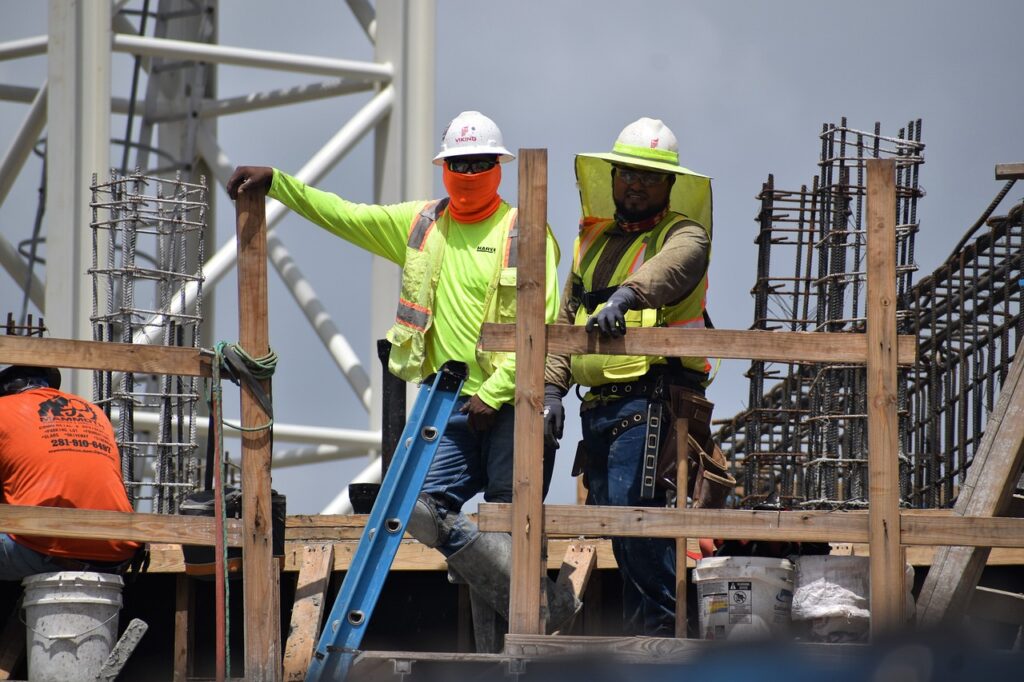How to Hire a General Contractor

When dealing with construction projects, it is highly recommended to hire a general contractor to assist you in organizing all the documents and financing, and ensuring your project will be ready on schedule. General contractors take a lot of the responsibilities from the owner and work hard to effectively communicate the needs of the owner to all parties on the projects.
The question is, how do you know the contractor you are hiring is reputable and will benefit you overall? What are some good qualifications of a contractor? Do I really need a contractor on my project?
All of these questions are vital to know when hiring someone who will provide guidance and organization for your project.
What is a General Contractor?
Before hiring a contractor, it is important to know what role they will play in your construction or renovation project.
A general contractor is someone hired by a client to carry out work required in the completion of a project. Their job is to keep the project organized and effectively communicate with all parties to ensure the project is completed on schedule. Their responsibilities include overseeing construction, scheduling, financial budgeting, task delegation, communication, legal documentation, and resource management.
General contractors are like the general manager of a construction site.
Qualifications of a Good General Contractor

When hiring a contractor, you should know what are some good qualifications of a respectable contractor. However, qualification requirements vary based on different cities, counties, and states. This means finding a reputable contractor will necessitate background research on what the company is and what are the criteria of where they operate.
Ideally, some good credentials of a contractor have:
- Relevant Experience: Having an experienced contractor who has been operating for many years is a good sign that they are skilled in their field.
- Workers Compensation: Construction is a high-risk job field, and it is common for workers to be hurt. A contractor with workers compensation shows that they value their workers and have coverage in case something goes wrong.
- Property Damage Coverage: A contractor with property damage coverage will make sure any accidents or damage done on the property will be handled, and not something the owner will have to pay potentially out-of-pocket.
- Required Permits: Contractors who have readily available documentation of their construction permits are more trustworthy than those who do not have them or unaware of permits needed for their job.
- Personal Liability Insurance: Contractors with personal liability insurance covers any damage and repairs done to the owners personal property during the construction process.
- Good Reviews: A company with good reviews is always an excellent sign of quality service.
How to Hire a Contractor
Now that we have an understanding of what to look for with a contractor, we can start the process of hiring one for your project.
Recognize Your Project
Before looking online for a contractor, understand what project you will be doing. Contractors need to know specific details for home renovations or construction projects. The more information you have regarding your project, the more answers you will get when you reach out looking to hire.
Recommendations & Online Research
Find friends and relatives who had similar work done like your project and see who they suggest. Search online for contractors in your area who perform the specific work you are looking for. Make a list of several businesses so you have options.
Phone Interviews and Ask Questions
Perform phone interviews with each business and ask questions to see if they are open to your project and instill confidence with their explanations. Ask them about:
- How much do they charge for similar projects to yours?
- What certification and insurance do they have?
- Do they offer workers compensation?
- What is their expertise?
Schedule A Meeting

After sorting through the potential candidates, schedule a meeting with the candidates who fit your criteria. It is better to have a meeting in person, but if they have remote meetings, then prepare follow-up questions with an explanation of your project. Finding someone who is good at communication is important since they will play a vital role in your project. Choose a candidate who answers your questions in a satisfactory manner.
- Inform them of the project you wish to hire them for
- What is the estimated timeline of completion for the project?
- How much experience do they have with projects like this?
- What payment schedule would they require?
- Do they have a list of references from current or former clients?
- Ask for more details about the company’s credentials and accommodations.
Fact Check
After having the meeting with each company, do some extra research to see if the company is credible and telling the truth. Fact check all the information provided and reach out to the list of current or former clients to get direct feedback on their service.
Get Everything in Writing
Once you have chosen the specific contractor you wish to hire, make sure to get everything agreed upon by you and the contractor in writing. Plans and designs may change, so document everything to have a trail showing what was agreed upon by both parties. This includes:
- Payment schedule – NEVER pay cash up front!
- Description of work and price
- Estimate dates (start and finish)
- Guarantees in contract
- Responsibilities in contract
- Signatures of both parties
- Any changes or edits to designs
Having everything in writing will provide you evidence in case someone tries to backout or renege on their deal.
When to Hire a Contractor
The best time to hire a contractor is early in the designing phase. Having a contractor aware from the very start of a project will increase overall clarity, establish clear communication and scheduling for a more consistent workflow.
Hiring a contractor for large projects is highly-recommended, but for small home renovations or simple re-designs, a contractor may not be necessary.
Considering a contractor when a project will require a lot of outside parties and organization to help balance the workload.
Hire Locally
When available, hire local contractors as they are often easier to communicate with and they are in the vicinity in case something goes wrong. Local contractors should be familiar with the area, and readily available when contacted.
Keep Organized File
Throughout the construction process, keep all documents in a secure location. These files should be the contract, plans, specifications, bills, invoices, copies of certification and insurances, letters, notes, emails and any change orders.
Like with any project, do your research before looking into any company or signing a contract. Read all the fine print and have an open line of communication with the contractor so your project can be completed on time and by design.
